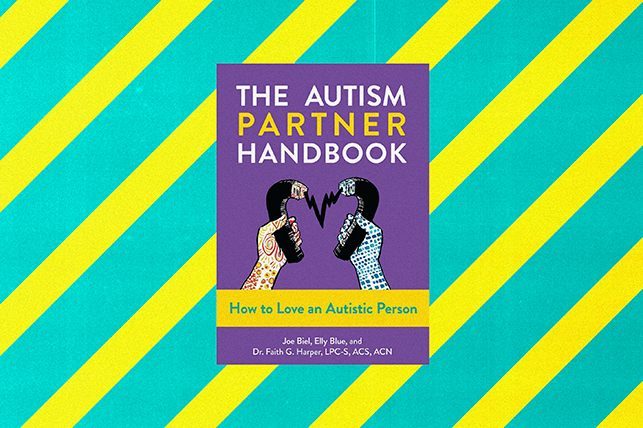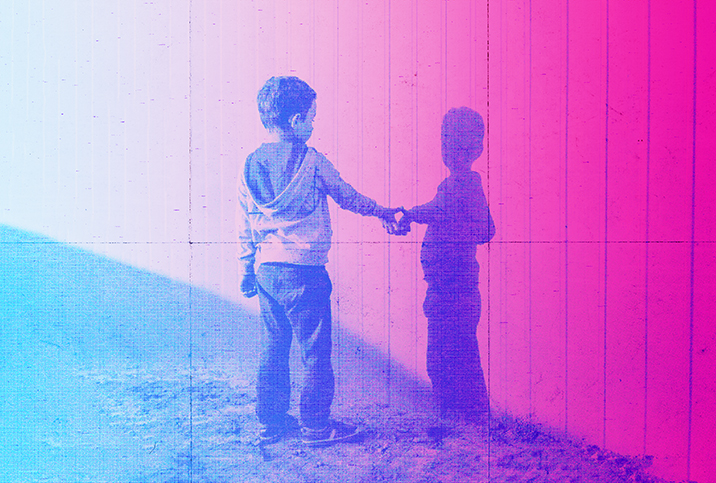Sexuality and Intimacy on the Autism Spectrum

Navigating the world of relationships, intimacy and sexuality is a tricky business for anyone. For someone with autism spectrum disorder (ASD), a developmental disability that impacts behavior, communication and intellect, these difficulties are only heightened.
While symptoms can arise from anywhere along the spectrum, people with ASD may face barriers when it comes to interpersonal matters.
The ABCs of ASD
Autism spectrum disorder is categorized as a developmental disability because it presents during the developmental period, usually at about 2 years old. Though diagnosis can occur at any age, it's easier to pinpoint early because a child's progress can be measured in accordance with developmental milestones.
"Hormonal changes usually occur on time but can be a bit delayed—you see bigger problems when they aren't in alignment with maturity," said Rosemarie November, a speech-language pathologist (CCC-SLP) for 30 years and founder of November & Associates Therapy Center. However, one of her colleagues, Karen Strong, an occupational therapist (OT-RL) of 22 years, mentioned pre-puberty and puberty symptoms are often demonstrated earlier than in previous decades due to the increased hormone presence in foods.
Some indicators of autism spectrum disorder include:
- Poor interpersonal skills and a lack of interest in others
- Emotional inconsistencies and difficulty empathizing
- Repetitive and rigid actions, routines and interests
- Sensory processing disturbances
- Repetition in speech, sometimes replacing standard language
- Intellectual deficits and delays
It's important to remember these are not all ASD symptoms. During the screening process, professionals note what criteria are present and rate them from one to three, depending on the necessary support required.
In addition, recognizing symptomology diversity is paramount. Formerly necessitating separate diagnoses, the DSM-IV now groups them into one spectrum for inclusivity, which also means that a case does not have to be extreme for a conclusion to be reached.
How to have an intimate relationship
Regardless of symptom severity, considerations must be made for people with ASD in relationships, particularly ones on an intimate level.
"It varies, but we usually see typical emergent signs of sexuality, just sometimes several years after you would see them in neurotypical children," explained Candice Kennerly, a board-certified assistant behavior analyst (BCaBA).
"Sometimes, the impetus for sexuality and intimacy occurs unknowingly, like a new discovery," Strong added. "Children will seek 'stimulation' behaviors, including humming, spontaneous outbursts/movements, masturbating, and repeating comforting and calming mantras. They will also seek sensory-motor input, such as jumping, throwing objects, or crashing their bodies into a surface."
Strong noted the behavior could be innate or originate in attention-seeking to elicit the desired response.
Sex education and ASD
Because adjustment is distressing for someone with autism spectrum disorder, sex education is of great importance as it lays the foundation for the person's future capabilities.
"Caregivers should bring up the topic of sex naturally as behaviors occur," Kennerly said. "Sex education is very individual and depends more on the functioning level."
Schools don't necessarily cater to sex ed for special needs, so there's a risk of inappropriate pacing because people with autism spectrum disorder aren't at the same level as their peers.
"Use a multi-disciplinary approach with a lot of guides, visuals and social stories that can be generalized," November recommended. "Privacy circles and visuals with steps or stages are helpful, especially for lower functioning individuals."
Teaching someone with ASD how to communicate with future partners about sex is essential, too. Prepare them for changes, including personal hygiene, menstruation, bodily development, masturbation, fluids, contraception and STIs/STDs.
"Assure them that puberty is natural and it's okay to be curious, but specify when it's appropriate to ask questions," November said. "Make sure they know what constitutes a public versus private place."
Getting intimate
Though sex and intimacy aren't mutually exclusive, they often go together hand-in-hand. Intimacy is typically a precursor for sexual relationships, but autism spectrum disorder may hinder this ability.
"They may try to make physical contact to convey their emotions, particularly if social skills are inadequate," November said.
"Children with disabilities demonstrate inappropriate behaviors upon sexual awakening, including 'stalking' habits," Strong added. "One child I treated followed a girl in school to every class and was reported, so we had to help him understand why the behavior was inappropriate."
Strong emphasized that this child with ASD was totally unaware of the social faux pas, and was merely driven by a desire to connect with the other person.
The obstacles of dating and consent are other factors to consider.
"Not knowing how to empathize and poor communication can lead to failed relationships," November said. Kennerly noted, "Some don't quite understand the complexities of emotional connections and/or cannot reciprocate due to possible emotional immaturity or deficits."
'People with ASD have a wide range of sexual needs and behaviors, just like neurotypicals. The majority want intimate relationships, but just struggle to facilitate and maintain them.'
Initially, dating should be supervised, whether in a group function or online, and training or coaching may be needed.
"Break physical conduct down into steps, telling the person to ask for consent between each one, such as from kissing to touching the other person's body," November explained. "Some lack all understanding and are unable to provide informed consent."
The combined factors make all aspects of relationships arduous.
"Abstinence is high and there are lower rates of long-term relationships, dating and children," Kennerly said. "Safety is the most important thing, for both individuals with autism spectrum disorder and others. And lack of understanding can lead to exploitation or legal issues."
By setting boundaries and establishing a respectful rapport, anyone should have the opportunity to be with someone who is honest, faithful and dependable, and with a unique worldview.
"People with ASD have a wide range of sexual needs and behaviors, just like neurotypicals," November explained. "The majority want intimate relationships but just struggle to facilitate and maintain them."
Use compassion and understanding regarding sexuality and intimacy for someone with autism. Be respectful of their feelings and try to discern the origin of their behavior to give them the best chance of having successful relationships.
For resources, Kennerly recommends group therapies, social skills groups and the Center for Autism and Related Disorders, while November suggests literature and online guides from autism organizations.


















